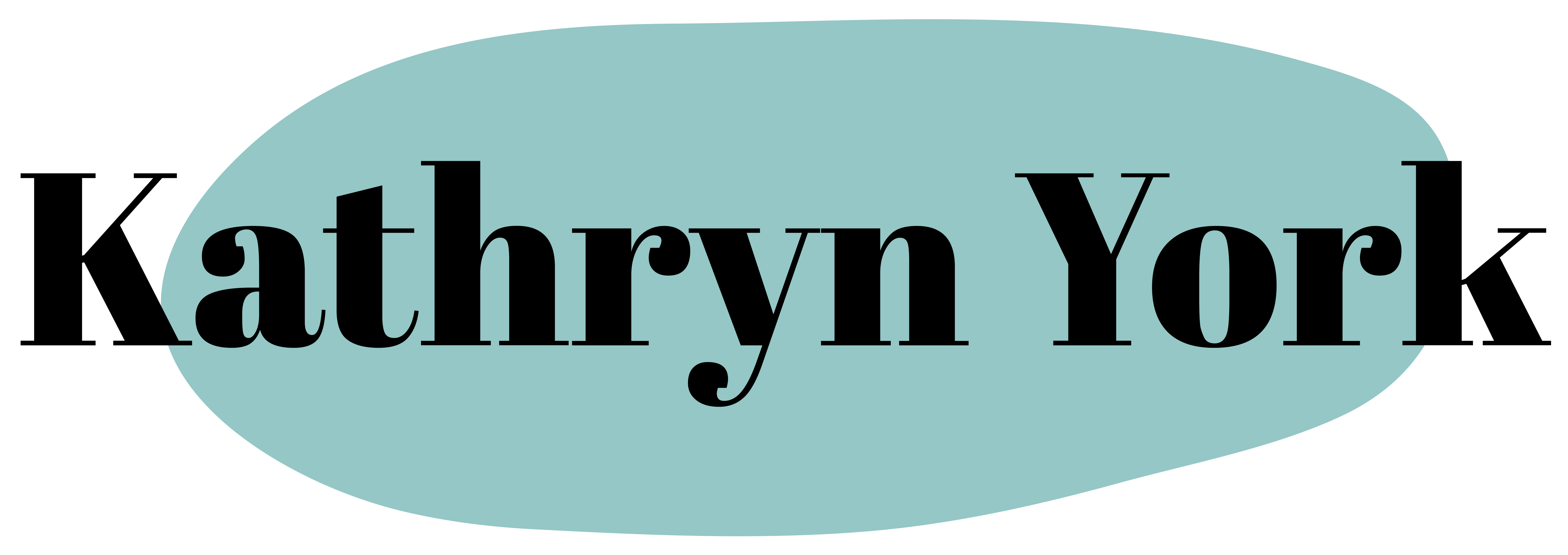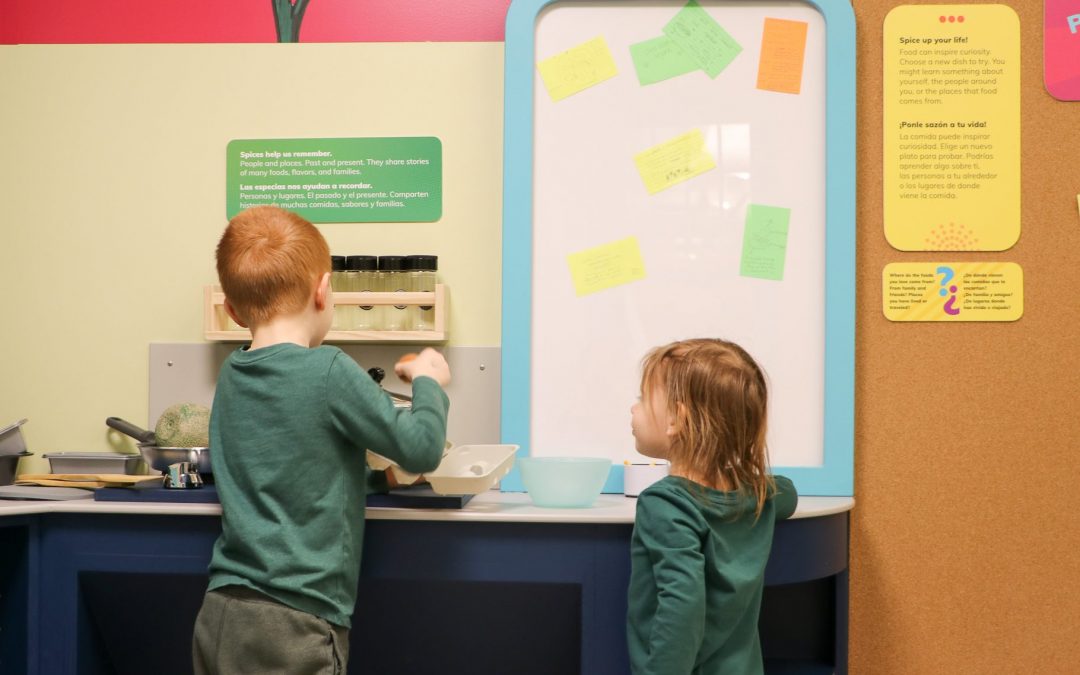I dip my spoon into a can of tomato sauce and gingerly spread it across a layer of dough. My dad rolls the next round of dough out next to me, humming some semblance of a Genesis song. The oven is set to almost 500 degrees, hot enough to scorch my eyebrows if I get too close. It’s someone’s birthday, or a special get together, or maybe just a Friday night with extra time to spare. No matter the reason for this particular instance, homemade pizza is in order.
Food has the power to form connections and elicit specific memories. Whether through the act of cooking, sharing a meal, or discovering a special dish out in the world, food is a powerful connector. In Boston Children’s Museum’s You, Me, We exhibit, the “Grab a Plate” zone, notable for its kitchen set up, community garden, and large potluck style tables, encourages visitors to come together through food, tradition, cooking, and community.
For those new to You, Me, We, this shared exhibition experience was built as a place for families to connect around questions of identity and bias in the world around us. Identity, a key theme throughout the exhibit, is composed of many, many things. Family make up, beliefs, music, and community are just a few of the visible and invisible parts of identity highlighted throughout You, Me, We. In the “Grab a Plate” zone, visitors can reflect on cultural identity and traditions through the lens of food.

But, what does reflecting on food and identity actually look like in practice? Today, it looks like kids concocting a soup of wooden veggies in the kitchen. Strangers connecting in conversation at the potluck table. Visitors exploring different recipe contributions and leaving meaningful recipes of their own.

On the screen above You, Me, We’s “Food Traditions” table, a short series of video testimonies offers another entry point for visitors to explore the relationship between food and identity. This video installation features first person stories about food memories or connections to food. To collect authentic, local stories, Museum staff interviewed participants at Boston Children’s Museum, within participant’s neighborhoods, and at the Nutrition Lab within the Roxbury branch of the Boston Public Library. Food Story interview participants ranged from lifelong Boston residents to first and second generation immigrants, new arrivals to the USA, and various iterations in between – even within one family. Malene Welch, the Museum’s Director of Community Engagement and Food Stories Project Lead, shares, “Even with a vast range of participant demographics and histories, some themes remained constant. Common themes were expressions of love through cooking, pride in cultural cuisines, and recipes passed down through generations which serve as cherished memories of family dinners, observances, and celebrations throughout the years.”
Each food story account offers a window into participant’s lives, identity, and their connections between food and family. Participant Rashaad Bryant recounts his experience going to family cookouts on the beach in Miami, “The whole grassy area would be full of Fraziers just having a cookout, going crazy, playing music, dancing. And the food kinda brought us all together. Everybody brought their own dishes and talked about how good their ribs were, and better than somebody else’s ribs…”
Another interview participant, Boston local chef Gaitskell Cleghorn Jr., shares the lasting impact of family gatherings in the home, “Some of the memories I have with cooking and eating with my family would have to be when I was really little. We would do some traditional things, everyone eating around one big table in the dining room. Those are always really fun. You get to hear everybody’s funny stories… you even get to hear some things that maybe shouldn’t have been said, so you get to laugh at your siblings getting scolded.”
Specific foods can also hold special meaning for individuals. Carmel, 12 and a half years old at the time of the interview, shares, “I like spaghetti, probably because it’s the first food my dad fed me when I came to Massachusetts, so I just feel connected to it. And it’s also really good.”
Whether at potlucks, intimate gatherings in the home, or a specific meal or type of food, some of our most memorable moments are tied to the connections, conversations, and moments we share through food. Beyond sustenance, food connections and memories are a crucial piece of our identity.
While food can be a source of joy and celebration, it can also be a source of anxiety, and even trauma, where food insecurity is concerned. Understanding that stories about food may impact people differently based on individual experiences, the Museum’s You, Me, We exhibit will also continue to feature stories that highlight local food justice initiatives and resources for visitors to learn more and find or offer support. Discover some local food insecurity and volunteer initiatives linked below.
Stories are all around us and within us. Through the experiences we have, the people we meet, and in the foods we share. These stories make us who we are. For many, the kitchen acts as the catalyst for such connections. It’s where we gather to make food, to learn traditions, to engage in intergenerational experiences, where we share a meal and come together. No matter your story, whether it be a family pizza night, cookout on the beach, or a connection to particular food, we want to celebrate that. Learn more about what foods and memories stand out for different community members in You, Me, We. Then, think about what foods have meaning for you. Leave a recipe, read a recipe, and share your story with us.

Food Insecurity & Volunteer Resources:





Recent Comments